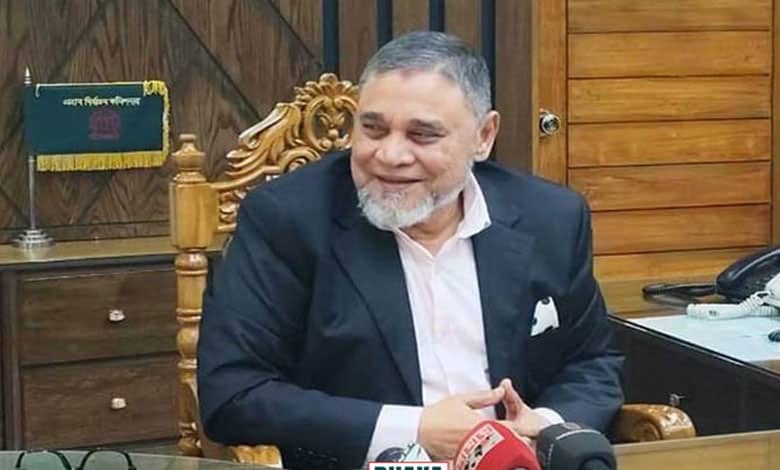Bangladesh Election Commissioner Pledges Neutrality Amid Election Tensions
The Chief Election Commissioner (CEC) of Bangladesh, AMM Nasir Uddin, has reaffirmed the Election Commission's commitment to neutrality ahead of the country’s next elections. Speaking at the annual general meeting and prize distribution ceremony of the Reporters Forum for Election and Democracy (RFED) on Sunday, Nasir Uddin emphasized that the commission would not support or oppose any political party.

The Chief Election Commissioner (CEC) of Bangladesh, AMM Nasir Uddin, has reaffirmed the Election Commission’s commitment to neutrality ahead of the country’s next elections. Speaking at the annual general meeting and prize distribution ceremony of the Reporters Forum for Election and Democracy (RFED) on Sunday, Nasir Uddin emphasized that the commission would not support or oppose any political party.
“We, in the commission, do not want to engage in politics. We do not want to stand for or against any political party,” he stated, adding that their goal is to remain neutral throughout the election process. These remarks were made in Dhaka at the Nirbachan Bhaban, the headquarters of the Election Commission.
Table of Contents
Political Control Over Election Commission: A Major Concern
In his address, CEC Nasir Uddin pointed out that the main source of criticism towards the Election Commission has been political control. He stressed that “political control over the Election Commission is the most significant factor” behind much of the criticism the body faces. This acknowledgment comes amid a growing call for reforms to ensure the election process remains free, fair, and transparent.
The Election Commission’s independence has long been a contentious issue in Bangladesh, with accusations of political influence in its operations. Nasir Uddin’s comments offer hope for restoring the integrity of the election process ahead of the 2025 or 2026 national elections.
Bangladesh’s Political Crisis and the Upcoming Elections
Bangladesh’s political landscape has been increasingly turbulent, with the unceremonious removal of former Prime Minister Sheikh Hasina marking a significant setback for the country’s democracy. The violence and political upheaval that followed have left Bangladesh’s democratic system fragile and vulnerable.
The upcoming elections are seen as a critical moment for the country to resolve its ongoing political crisis. However, the challenges facing the caretaker government under Muhammad Yunus, alongside the rise of new political forces like student groups and radical Jamaat-e-Islam, make it uncertain whether the elections can be conducted in a peaceful and orderly manner.
Also Read: Trump Announces 25% Tariffs on Steel and Aluminum Imports, Threatens More to Come
Challenges to Bangladesh’s Fragile Democracy
Recent incidents, such as the destruction of Dhanmondi 32, the historic residence of Sheikh Mujibur Rehman, have highlighted the fragile state of Bangladesh’s political and social systems. These developments have raised concerns about the country’s ability to restore democratic order ahead of the elections.

As Bangladesh moves toward its next election cycle, the role of the Election Commission and its ability to act independently will be closely scrutinized. Nasir Uddin’s pledge to ensure a neutral stance may offer a glimmer of hope for those seeking to restore stability and democracy in the nation.
